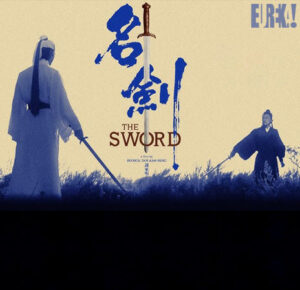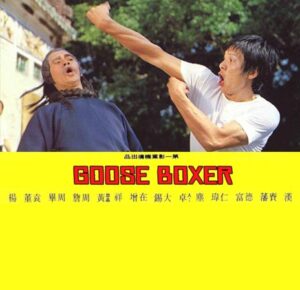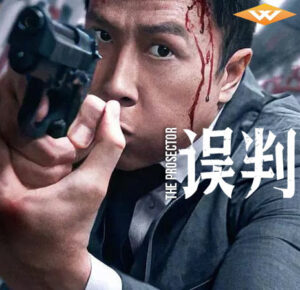Director: Lau Kar Leung
Cast: David Chiang, Cecilia Wong, Lily Li Li Li, Lau Kar Wing, Wai Wang, Wilson Tong, John Cheung, Wong Ching Ho, Cheng Miu, Norman Chu, Gordon Liu, Meng Hoi, Lee Hoi San
Running Time: 96 min.
By Matthew Le-feuvre
Throughout their careers as movie producers, the Shaw brothers were always confidently direct (especially the late Sir Run Run) when conveying their production targets: diversity was, naturally, their main aim to healthy box office returns via catering to the tastes of cinema-goers practically all over south-east Asia.
While their contemporary thrillers or fantasy horrors tended to be modest or hokey respectively, the Shaws’ traditional/Wuxia features on the other hand were of a different calibre: savagely baroque, emotionally uplifting and fantastically stylized, yet behind these motifs there were/are hidden metaphors and politically charged statements (not always visible to Communist mainlanders) still relevant today as they were thirty or forty years ago.
Usually under the watchful eye of in-house director, Chang Cheh and his former protege – fight choreographer turned film-maker, Liu Chia Liang – both chose to elucidate how harsh communism was (and continues to be!) using the backdrop of Kung Fu cinema as a conduit for self expression; although each had their own individual stamp, politically.
‘Oppression’ or battling ‘Class Oppression’ were major nuances that drove Chang Cheh’s subject matters, particularly through the unification of patriotic heroes whom seldom won against the machinations of a corrupt government, whereas Liang’s approach was always the singular or ‘loner’ facing insurmountable odds often winning by the application of piety and humanity: Cheh’s protagonists, however, invariably succumbed to bloody martyrdom. Shaolin Mantis, Liang’s fifth directing credit, was too take all these concepts one step further highlighting (the) Yin/Yang complexities in relationship to all things political, martial and spiritual.
Otherwise known as Deadly Mantis in the states, the irrepressible talents of David Chiang are put to the test both characteristically and physically in a role often regarded as his second finest (Vengeance, naturally being the first); not that Chiang has ever given a bad performance. Here he was allowed a little more vulnerability than his general typecasting of grinning rogues or flighty swordsmen as Wei Feng – a Ching (Manchu) official ordered to investigate a wealthy family suspected of having pro ‘Han’ revolutionary connections. Posing as a wandering scholar, Feng manipulates his way into the Tien family household, primarily employed as a teacher to wayward granddaughter, GiGi (Huang Hsin-Hsui).
There, Feng is introduced to each member who periodically tests him of any fighting abilities, which he conceals through feigning ignorance of the martial arts. Unintentionally Feng’s mission leads to romance and inevitably marriage to GiGi much too the consternation of her grandfather (Liu Chi Yung aka Lau kar Wing), who is convinced Feng is a Ching spy. Finding evidence needed to insure his position within the Ching administration, Feng influences GiGi into leaving the mansion on a whim of wanting to visit his parents; which in part, is the truth.
The next two paragraphs contains spoilers: The Tien elder (Yung) otherwise has more severe designs in mind. During their escape, Feng reveals his martial arts prowess and finds himself, in tandem with GiGi , confronting a gauntlet of five opponents: these consist of (support) Hong Kong superstars, John Chang, Tsiu Siu Keung, Lily Li, Wilson Tong and aforementioned Liu Chia Yung. GiGi, however, is accidentally killed forcing Feng into hiding while the remainder of the Tiens’ believe he committed suicide by riding off a cliff.
In reflective solitude, Feng contemplates his revenge, but knows his limited skills are no match for the elder Tien until inspiration occurs in the form of a praying mantis. Studying the insect under various conditions, Feng develops his own mantis fist style and returns to the Tien estate fully versed to counteract Grandpa Tien’s seemingly devastating Kung Fu techniques.
The film concludes with an ambiguous narrative, posing numerous political afterthoughts as too the real meaning of patriotism; or be as it may, the duality or opposing values of patriotic/nationalistic duty.
Importantly, Liang’s canvases have always been bold and versatile beneath the Shaws’ studio banner, deliberately asking questions in a subtle way without alienating audiences or hindering the continuity of fight choreography and/or – if critics truly observe – character development: an area of film-making Liang genuinely cared about as much as presenting distinct Kung Fu formats.
Although Shaolin Mantis may not appeal to those interested in its contradictory political subtext, the flip side of this timeless classic is Chiang’s humanized performance and Liang’s fluid direction/choreography which more than compensates for any detectable flaws, technical or otherwise.
Verdict: Poetic, ironic and totally breathtaking!
Matthew Le-feuvre’s Rating: 10/10























Be the 1st to Comment